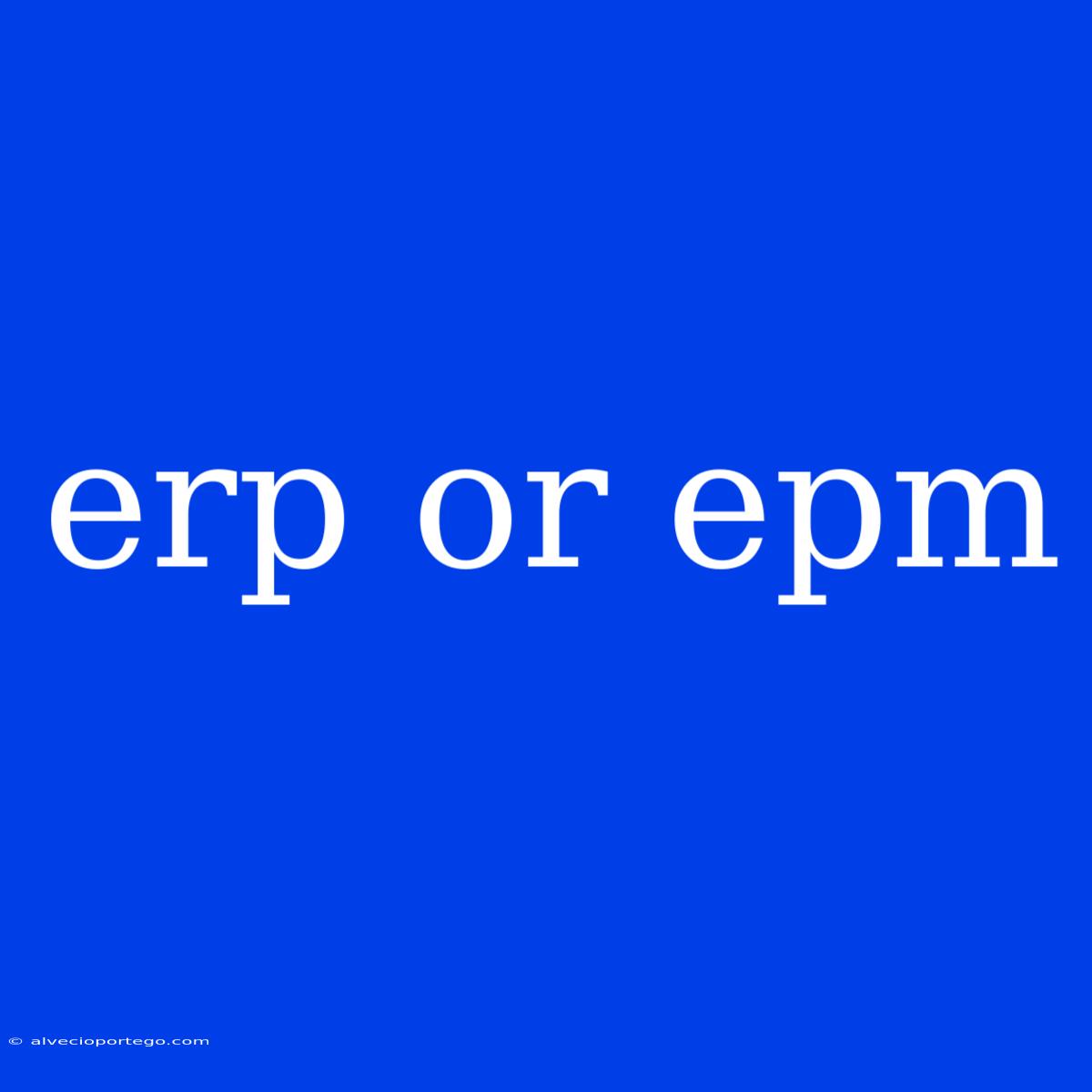ERP vs. EPM: Understanding the Differences and Choosing the Right Solution
In the world of business software, Enterprise Resource Planning (ERP) and Enterprise Performance Management (EPM) are often mentioned together, but they are distinct solutions serving different purposes. Choosing the right one for your business depends on your specific needs and goals.
What is ERP?
ERP (Enterprise Resource Planning) is a comprehensive software suite that integrates various business processes across different departments within an organization. It aims to streamline operations, improve efficiency, and provide a single source of truth for all data.
Key Features of ERP:
- Centralized Database: Provides a unified view of data across all departments.
- Automated Processes: Automates repetitive tasks and workflows, reducing manual errors.
- Real-time Reporting: Offers real-time insights into key performance indicators (KPIs).
- Improved Collaboration: Facilitates communication and collaboration among teams.
- Modules for various departments: Includes modules for finance, human resources, inventory management, supply chain, customer relationship management (CRM), and more.
Common ERP Solutions:
- SAP
- Oracle
- Microsoft Dynamics 365
- Infor
- Epicor
What is EPM?
EPM (Enterprise Performance Management) focuses on strategic planning, budgeting, forecasting, and performance analysis. It helps businesses set goals, track progress, and make data-driven decisions to improve overall performance.
Key Features of EPM:
- Financial Planning and Budgeting: Provides tools for setting budgets, forecasting, and financial planning.
- Performance Monitoring: Tracks key performance indicators (KPIs) and provides insights into business performance.
- Scenario Planning: Enables organizations to model different scenarios and understand potential outcomes.
- Reporting and Analytics: Offers advanced reporting and analytical capabilities for deeper insights.
- Strategic Alignment: Helps align financial and operational performance with strategic goals.
Common EPM Solutions:
- Oracle Hyperion
- SAP Analytics Cloud
- Microsoft Power BI
- IBM Cognos
- Qlik Sense
ERP vs. EPM: Key Differences
| Feature | ERP | EPM |
|---|---|---|
| Focus | Operational efficiency and process automation | Strategic planning, budgeting, and performance management |
| Scope | Broad range of business processes | Primarily financial and performance-related |
| Data | Transactional data | Financial and operational data |
| Use Cases | Streamlining operations, inventory management, customer service | Financial planning, budgeting, forecasting, and performance analysis |
When to Choose ERP vs. EPM
- Choose ERP if you need to streamline your core business processes, improve efficiency, and automate tasks.
- Choose EPM if you need to improve your financial planning, budgeting, and performance analysis capabilities.
Conclusion
ERP and EPM are both valuable software solutions that can help businesses achieve their goals. Understanding the key differences and choosing the right solution for your specific needs is crucial for maximizing your investment. In some cases, your organization might even benefit from integrating both ERP and EPM systems for a comprehensive approach to managing operations and performance.

